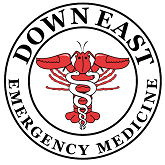Subdissociative Dose Ketamine in the Emergency Department
/Emergency medicine physicians have a love affair going on with ketamine for its versatility. In this post we discuss the optimal use of subdissociative dose ketamine (SDK) for analgesia as an alternative to opioids, with our guest Sergey Motov (@painfreeED).
Read More














